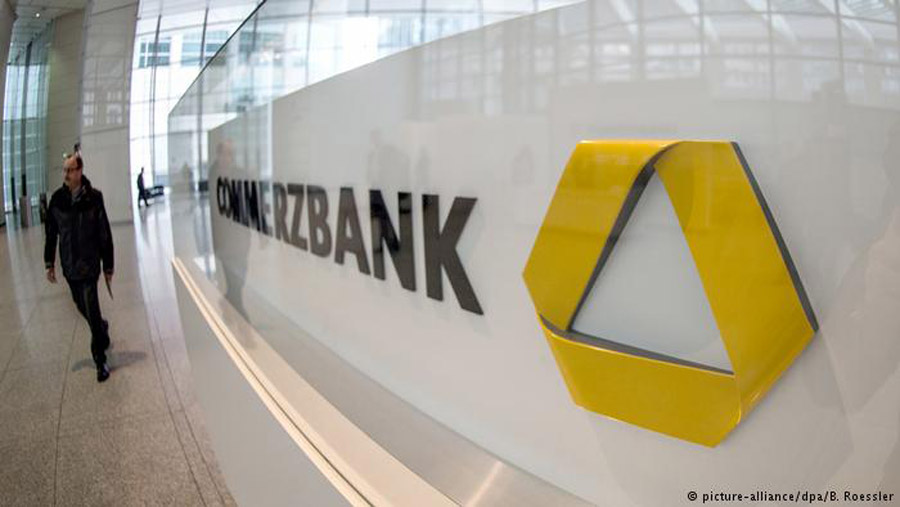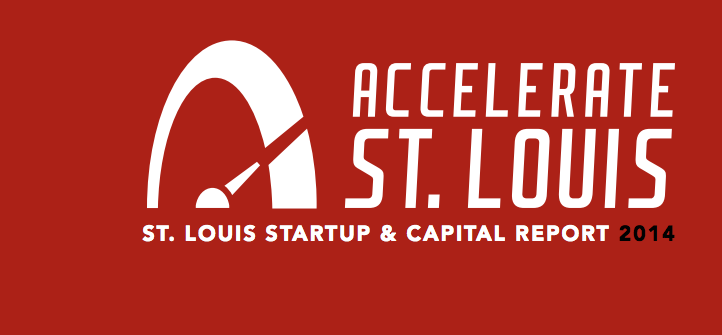St. Louis Startup & Capital Report 2014

According to the newly released Accelerate St. Louis Startup & Capital Report 2014, the greater St. Louis region demonstrates “unprecedented growth and strength of the regional ecosystem for tech-based startups.”
The document, which is released once per year, shows that the St. Louis region has established itself as a potent and attractive hub for startups.
The report, which is published yearly by the St. Louis Regional Chamber, says that “the pipeline continues to fill” as more than 50 new startups emerged in 2013. In the past two years, the number of new startups has seen a 25% year-over-year growth.
37 of these companies are tech startups, continuing a trend “counter-intuitive for a region with deep research base and support system in Life Sciences.”
All in all, at least 33 St. Louis regional startups raised over $1 million in 2013 totaling more than 380 million dollars. That’s more than six times as much as in 2012. What’s more, the rounds of investments worth more than $1 million more than doubled (after having been relatively stable for five years prior to 2013).
According to the report, “another 42+ startups raised equity investments totaling less than $1 million.” Of the ventures that achieved some success since 2006, an astonishing 85%, or 200, are still in business and “are likely now seeking capital investments.”
The Pipeline Results of the St. Louis Startup Research
While many ventures that are active today achieved startup status in “vintage years” as early as 1998, 2006 was a “benchmarking year”, as 35 companies, more than 20 from the biotech industry, attained a “milestone”. The report attributes that success to the “nascent, but fully functioning” Arch Angels organization, two life science incubators and a “robust” NIH SBIR Award Program.
Although the number of companies reaching “startup” status declined during the recession, pipeline activity “returned to pre-recession levels” in 2011, when 34 new startups sprouted.
The report states that the growth is due to several initiatives, one of them being BioGenerator Accelerator Labs, which was launched in 2010. It “impacted positively the number of early-stage startups receiving capital and EIR support”. EIR stands for entrepreneur-in-residence.
Another impetus came from the angels groups, particularly the Arch Angels, which “have funded much of the Seed stage life science startup growth.” According to the report, it has “one of the nation’s highest average round of investment per company”, having distributed a remarkable $40+ million since its inception.
The launch of Capital Innovators IT accelerator in 2011 also contributed to the growth of the startup ecosystem, because it “bolstered the IT sector over the past two years.” The document also calls the launch of Arch Grants in 2012 a contributing factor, as they funded “15 companies at $50K per year.” As a result, the greater St. Louis region ended the vintage year 2012 with the “largest number of new companies to reach record startup status on record.”
Additionally, SixThirty, a financial industry-specific accelerator launched in 2013, “continues to make $100,000 equity investments into each new finserve startup – attracting firms to relocate from the UK, NY, and CA.”
The report also credits the T-REX incubator for the abundance of new startups in the last three years. Calling it a “focal point” of the St. Louis startup community, the paper also says that “T-REX has built a physical lexus can co-location for investors, startups, and EIR programs.” Moreover, the “sense of momentum and sustainability is most palpable” at the building, which is not surprising, for it was recognized as the fastest-growing technology-based incubator in the U.S, according to the report.
The Funding Results of the St. Louis Startup Research
Pre-seed accelerator programs like BioGenerator, Capital Innovators and Arch Grants have accounted for over 37% of companies reaching event startup status since 2006 and have been a “catalyst” in the pre-seed stage funding category. Consequently, a “startup bulge” at the “earliest stages of funding” has led to many ventures being in need of seed capital “within 18 months of their pre-seed investment.”
This “extraordinary demand”, according to the report, has put pressure on the “limited sources of seed capital in the regional economy.” The Arch Angels along with other accredited investors have been the primary sources for seed capital. The account claims that although the seed sector is “under-funded”, “follow-on capital rounds of $1 million or more have increased surprisingly well”.
While the amount per investment in venture capital (over $1 million) ‘only’ climbed back to 2011 numbers, the number of investments, as instanced above, more than doubled, accounting for a huge chunk of the total of $380 million that was raised in 2013. That’s a 600% increase from 2012 to 2013.
The St. Louis Regional Chamber believes that the availability of this series A capital investment is a major reason why the St. Louis startup scene is thriving. It is at “inflection point” like the series A capital investment where the economic impact is “most pronounced”.
“These large equity investments enable entrepreneurs to take a product to market, to scale the hiring of employees, or to shift to the mass production of goods or services.”
However, the report also states that most Series A venture capital rounds were raised by investors outside of the St. Louis region.
Therefore, in order to “retain the economic impact”, the report urges that “more capital must be under-management locally” to ensure that relocation “will not be a requirement of continued capital formation.”
The goal of the St. Louis Startup & Capital Report is “to provide accurate and thorough primary research findings about the startup community in St. Louis with data that illustrates recent historical and developing trends.” According to the St. Louis Regional Chamber, the report allows the Chamber to “more accurately track and support startup development” as well as leverage “new start-up resources, investments, and policy that support the regional entrepreneurial growth.”
See the report for further information and details on what companies are considered startups and how funding data is obtained.
The St. Louis Regional Chamber declared a $100 million initiative in 2013 to “ensure that entrepreneurs will have access to the capital, resources and entrepreneurs-in-residence necessary to make them successful and the St. Louis region to be a top ten city for venture capital investment per capita.”
Tags
2013, 2014, Accelerate St. Louis Startup & Capital Report 2014, accelerator, angel investor, Arch Angels, Arch Grants, Benjamin Bathke, BioGenerator, business accelerator, capital, Capital Innovators, economy, incubator, Missouri, NIH SBIR Award Program, St. Louis, St. Louis Regional Chamber, St. Louis Startup Research, startup, T-REX, Techli, venture capital, venture capitalistRecent Posts
 Deutsche Welle – German bank blacklist of Yemeni nationals widensbenjamin - 02 May
Deutsche Welle – German bank blacklist of Yemeni nationals widensbenjamin - 02 May Deutsche Welle – The future of driving is (almost) herebenjamin - 02 May
Deutsche Welle – The future of driving is (almost) herebenjamin - 02 May A Reading Guide to the Accountability of Humanitarian Aidbenjamin - 02 December
A Reading Guide to the Accountability of Humanitarian Aidbenjamin - 02 December

